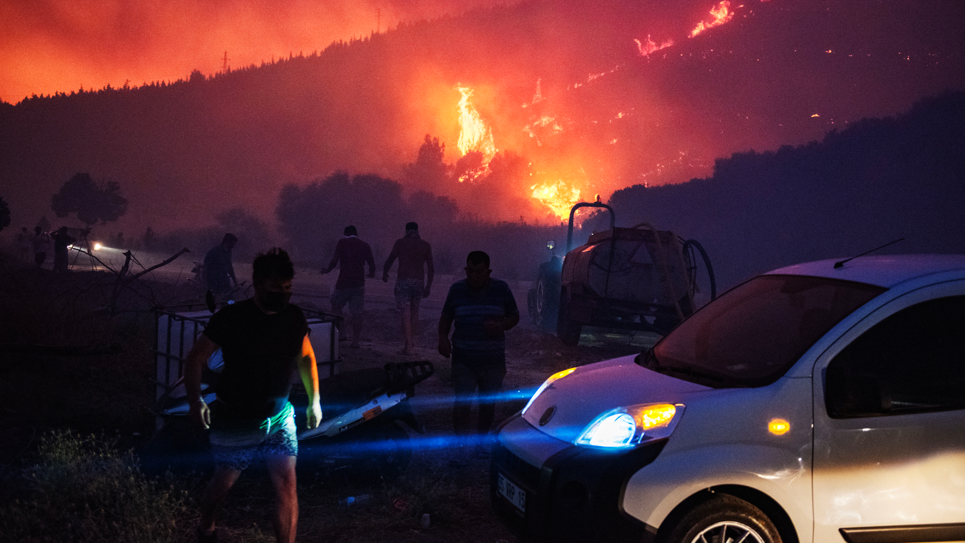Spain and Portugal have recorded their hottest June ever, as extreme heat scorches Europe and triggers wildfires, evacuations, and red alerts in several countries Europe heatwave 2025. The Iberian Peninsula is at the epicenter of the crisis, with Portugal logging a staggering 46.6°C in Mora and Spain surpassing temperatures typical of July and August, according to the countries’ respective meteorological agencies.
Spain’s national weather service Aemet said June 2025 has “pulverised records” as heatwaves pushed daytime highs above 43°C in multiple regions, including Madrid, Seville, and Barcelona. In Portugal, authorities are working to confirm if the 46.6°C reading is a new national record for June.
Wildfires and Health Emergencies Across Europe
The relentless heat has triggered wildfires in western Turkey, forcing the evacuation of more than 50,000 residents from the Izmir region. Fires are also raging in the provinces of Bilecik, Hatay, Sakarya, and Manisa. Turkish officials report 263 wildfires over just three days.
In France, the top of the Eiffel Tower has been closed due to extreme heat, and the government has activated a red alert in Paris and 15 other regions. The Ministry of Education has shut down over 1,300 schools, citing student and staff safety. Monday marked the hottest June day on record in several French cities Europe heatwave 2025.

Italy has reported at least two heat-related deaths. Hospitals in Tuscany have seen a 20% rise in admissions, and working outdoors in Lombardy is now banned from 12:30 PM to 4:00 PM during peak heat hours. In Greece, wildfires destroyed homes near Athens as temperatures approached 40°C.
The UK narrowly missed setting a record, with 33.1°C recorded at Heathrow Airport, making it the hottest opening day ever at Wimbledon. In Germany, authorities expect highs close to 38°C, while parts of the Balkans are starting to cool after days of sweltering conditions Europe heatwave 2025.
Environmental Impact and Climate Concerns
Extreme heat is also affecting the environment. Low water levels in the Rhine River are disrupting cargo transport, increasing shipping costs. Warmer Adriatic Sea temperatures are encouraging invasive species like the poisonous lionfish, while alpine glaciers continue to shrink at alarming rates.
Volker Turk, the United Nations High Commissioner for Human Rights, warned that this heatwave underscores the urgent need for climate adaptation. He stated: “Rising temperatures, rising seas, floods, droughts, and wildfires threaten our rights to life, to health, and to a clean, healthy and sustainable environment.”
Climate scientists like Professor Richard Allan of the University of Reading have also spoken out. Allan explained that rising greenhouse gas levels are making it harder for the planet to release heat, causing more frequent and intense heatwaves.
“The warmer, thirstier atmosphere is more effective at drying soils, meaning heatwaves are intensifying, with moderate heat events now becoming extreme,” Allan said.
Long-Term Climate Change Signals
According to the UN Intergovernmental Panel on Climate Change (IPCC), heatwaves like this are becoming increasingly common due to human-caused climate change. If global temperatures continue to rise, the panel warns of even more devastating consequences worldwide.
More environmental news and global climate updates here.









